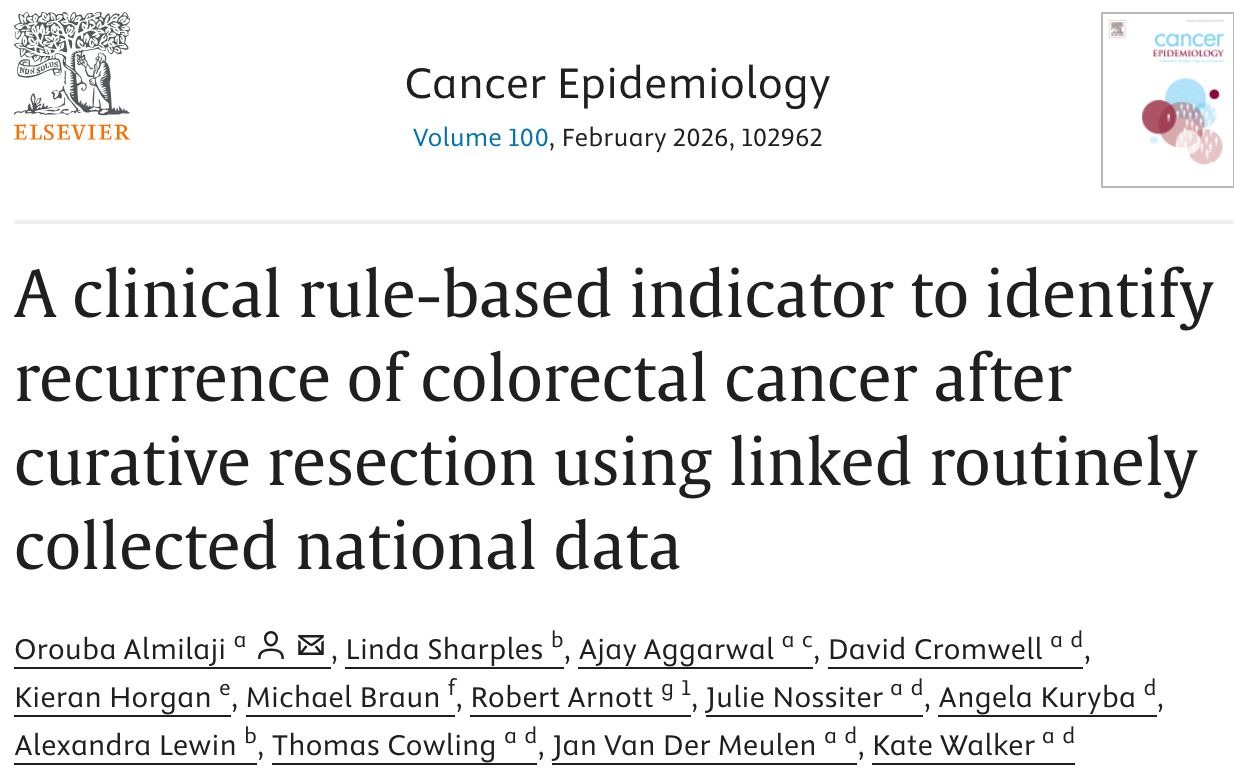Orouba Almilaji, Assistant Professor in Applied Medical Statistics and Health Data at the London School of Hygiene and Tropical Medicine, U. of London, shared a post on LinkedIn about a paper he co-authored with colleagues published in Cancer Epidemiology:
“Excited to share that our new paper is now published in Cancer Epidemiology!
This paper work took over two years to complete. We developed a two-step rule-based indicator to detect cancer recurrence using linked national routine datasets (CR, HES-AP, HES-OP, SACT, RTDS).
Using ICD-10, OPCS-4, and administrative codes, our indicator captures six clinically meaningful components: Diagnosis of recurrence, Treatment of local/regional progression, Metastatic disease, Chemotherapy, Radiotherapy, Palliative care. The indicator’s validity is supported by strong associations with tumour characteristics and survival outcomes.
Our methods help overcome the widely recognised problem that cancer recurrence is poorly recorded in most national registries, enabling much-needed real-world evidence to address gaps in understanding the effectiveness and value of evolving cancer care. The same methods we developed are currently in use to detect recurrence in head and neck, lung, and prostate cancer.
Huge thanks to our co-authors and everyone who supported this work!
Funded by HSDR NIHR.”
Title: A clinical rule-based indicator to identify recurrence of colorectal cancer after curative resection using linked routinely collected national data
Authors: Orouba Almilaji, Linda Sharples, Ajay Aggarwal, David Cromwell, Kieran Horgan, Michael Braun, Robert Arnott, Julie Nossiter, Angela Kuryba, Alexandra Lewin, Thomas Cowling, Jan Van Der Meulen, Kate Walker
You can read the full article in Cancer Epidemiology.

Read more about GI cancers on OncoDaily.


